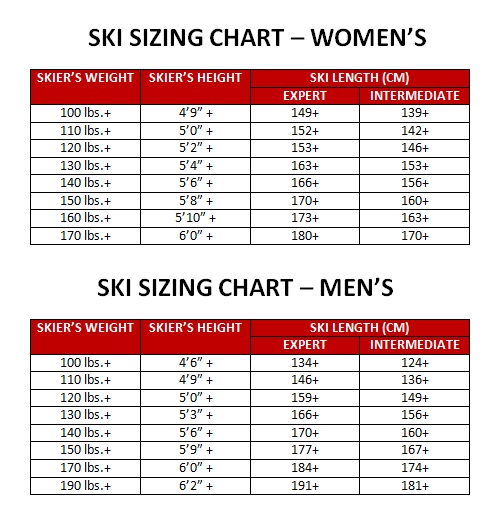Carving down a pristine slope, wind whipping past, the perfect skis beneath your feet – it's a feeling every skier chases. But what if those skis aren't the right length? The question of appropriate ski length is a crucial one, influencing everything from control to speed and ultimately, enjoyment. This guide delves deep into the intricacies of ski sizing, providing you with the knowledge to conquer any mountain.
Choosing the correct ski length isn’t a one-size-fits-all equation. It’s a personalized calculation, factoring in your height, weight, skill level, and skiing style. Ignoring these variables can lead to a frustrating experience, hindering your progress and potentially compromising safety. Imagine trying to steer a bus through a slalom course – that's the equivalent of skiing on skis that are too long. Conversely, skis that are too short can feel unstable at high speeds, like trying to balance on a skateboard down a steep hill.
Historically, skis were significantly longer than what we see today. Early skis, often crafted from solid wood, stretched well over the skier's head. As technology advanced, materials like fiberglass and carbon fiber allowed for shorter, more maneuverable designs. This evolution reflects the changing nature of skiing itself, from a primarily utilitarian mode of transport to a dynamic and exhilarating sport. The importance of finding the proper ski length lies in optimizing performance and maximizing the thrill of the ride. Properly sized skis translate to better control, smoother turns, and increased stability, allowing you to push your limits and experience the mountain to its fullest.
Several factors complicate the seemingly simple question of "How long should snow skis be?" Beyond the basic metrics of height and weight, individual skiing style plays a significant role. Aggressive skiers who crave speed and carve deep turns might prefer slightly longer skis. Those who prioritize maneuverability in the terrain park or mogul runs often opt for shorter lengths. Even boot sole length, often overlooked, can impact the ski's effective edge and overall performance.
To simplify this complexity, consider the chin-to-forehead rule as a general starting point. Stand your skis upright; the tips should fall somewhere between your chin and forehead. However, this is a broad guideline. Numerous online calculators and ski sizing charts offer more precise recommendations based on specific parameters. Consulting with a ski shop expert is invaluable, allowing for personalized guidance tailored to your individual needs and aspirations.
One benefit of correctly sized skis is enhanced control. With the right length, you can easily initiate and maintain turns, navigate varying terrain, and react quickly to changing conditions.
Another advantage is improved stability. Skis of appropriate length provide a solid platform, especially at higher speeds, reducing the likelihood of wobbles and falls.
Finally, correct ski length contributes to increased enjoyment. When your skis feel like an extension of yourself, you can focus on the pure joy of gliding down the mountain, free from the frustration of ill-fitting equipment.
Advantages and Disadvantages of Different Ski Lengths
| Ski Length | Advantages | Disadvantages |
|---|---|---|
| Too Long | Stability at high speeds | Difficult to maneuver, requires more strength |
| Too Short | Easy to turn, agile | Unstable at high speeds, less control on steep terrain |
| Just Right | Optimal balance of control, stability, and maneuverability | - |
FAQ:
1. Q: What ski length is right for me? A: It depends on your height, weight, skill level, and skiing style.
2. Q: Should I buy longer or shorter skis? A: Consult a ski shop or use an online calculator for personalized recommendations.
3. Q: Do I need different ski lengths for different types of skiing? A: Yes, specialized skis exist for powder, park, and racing.
4. Q: How does my weight affect ski length? A: Heavier skiers generally need longer skis.
5. Q: Can I use the same skis for both on-piste and off-piste skiing? A: While possible, specialized skis perform better in specific conditions.
6. Q: How often should I replace my skis? A: Depending on usage, every 5-10 years is a good guideline.
7. Q: What is the difference between ski length and ski width? A: Length affects stability and maneuverability, while width impacts floatation in powder.
8. Q: Does boot sole length matter when determining ski length? A: Yes, it can influence the effective edge of the ski.
In conclusion, determining the correct ski length is paramount for a fulfilling skiing experience. While seemingly complex, understanding the factors at play – your individual characteristics, skiing style, and the intended terrain – empowers you to make an informed decision. Whether you're a seasoned pro or a fresh-faced beginner, finding the perfect pair of skis unlocks a world of potential on the slopes. Remember to consult with experts, utilize available resources, and prioritize your individual needs to maximize your enjoyment and conquer any mountain with confidence. Invest in the right length, and invest in your passion.
How to measure snow skis - Trees By Bike
Ski Length Guide Men - Trees By Bike
Downhill Ski Size Chart - Trees By Bike
how long should snow skis be - Trees By Bike
Ski Size Chart How To Size Skis 60 OFF - Trees By Bike
Water Ski Length Chart - Trees By Bike
Ski Length For Height And Weight - Trees By Bike
How To Measure For Snow Skis - Trees By Bike
How Long Should X Country Skis Be at David Scheele blog - Trees By Bike
Downhill Ski Pole Length Chart - Trees By Bike
Ski Board Size Chart - Trees By Bike
how long should snow skis be - Trees By Bike
What Size Skis For Toddler at Joseph Gibbs blog - Trees By Bike
Kids Ski Sizes Charts - Trees By Bike













